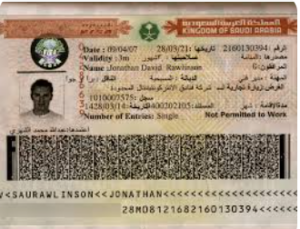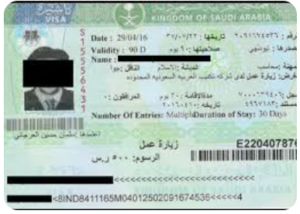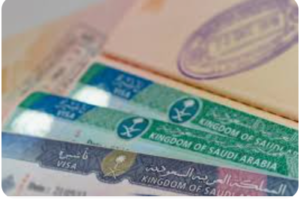Understanding the US VISA Process for Belgian and Brunei Citizens

Traveling to the United States for tourism, business, or even to visit family and friends is a dream for many. However, navigating the visa process can often be a daunting task. This article aims to shed light on the US visa application process specifically for Belgian and Brunei citizens, detailing requirements, procedures, and key information to make your journey as smooth as possible.
Visa Waiver Program (VWP)
The United States has a Visa Waiver Program (VWP) that allows citizens of certain countries to travel to the U.S. for tourism or business purposes for up to 90 days without a visa. Both Belgium and Brunei are part of this program, which simplifies the travel process significantly for their citizens.
ESTA: The Key to Visa-Free Travel
Under the VWP, travelers from Belgium and Brunei must apply for an Electronic System for Travel Authorization (ESTA) before embarking on their journey. ESTA is an automated system that determines the eligibility of visitors to travel to the U.S. under the VWP. It’s essential to apply for ESTA at least 72 hours before departure.
To apply for an ESTA, Belgian citizens can visit the official website for the US VISA FOR BELGIAN CITIZENS, while Brunei citizens can find the necessary information on the page for US VISA FOR BRUNEI CITIZENS. The application process is straightforward, requiring personal details, travel information, and answers to eligibility questions. The ESTA is usually approved quickly, and it is valid for two years or until the passport expires, whichever comes first.
Types of US Visas
While the VWP is convenient, it’s limited to short stays for tourism or business. For longer stays, work, study, or other purposes, Belgian and Brunei citizens need to apply for specific types of visas.
Tourist and Business Visas (B-1/B-2)
The B-1 (Business) and B-2 (Tourism) visas are the most common non-immigrant visas. They are suitable for those not eligible for the VWP or who plan to stay longer than 90 days. The B-1 visa is for business-related activities such as meetings, conferences, or negotiating contracts, while the B-2 visa covers tourism, vacation, and visiting family or friends.
To apply for a B-1 or B-2 visa, applicants must complete the DS-160 form online, pay the visa application fee, and schedule an interview at the U.S. embassy or consulate. The interview is a crucial part of the process, where applicants must demonstrate the purpose of their visit, their intention to return to their home country, and their financial ability to support themselves during their stay in the U.S.
Student Visas (F and M)
For those planning to study in the U.S., there are two main types of student visas: F and M visas. The F visa is for academic studies, while the M visa is for vocational or non-academic programs. To apply for a student visa, applicants must first be accepted into a U.S. educational institution, which will provide them with a Form I-20. This form is essential for the visa application process.
Applicants must then complete the DS-160 form, pay the SEVIS fee (Student and Exchange Visitor Information System), and schedule a visa interview. During the interview, applicants should be prepared to discuss their study plans, financial situation, and post-graduation intentions.
Work Visas
The U.S. offers various work visas for temporary employment, each with specific requirements and conditions. Common work visas include the H-1B (for specialty occupations), L-1 (for intra-company transferees), and O-1 (for individuals with extraordinary ability or achievement).
To apply for a work visa, applicants generally need a job offer from a U.S. employer who will sponsor their visa application. The employer must file a petition with the U.S. Citizenship and Immigration Services (USCIS) on behalf of the applicant. Once the petition is approved, the applicant can apply for a visa at a U.S. embassy or consulate.
The Visa Interview: Tips for Success
The visa interview can be a nerve-wracking experience, but with proper preparation, applicants can increase their chances of success. Here are some tips to help you through the process:
- Be Honest and Clear: Answer all questions truthfully and clearly. Consistency is key, as any discrepancies can raise suspicions.
- Bring All Required Documents: Ensure you have all necessary documents, including your passport, DS-160 confirmation page, visa fee receipt, and any supporting documents like the Form I-20 for student visas or a job offer letter for work visas.
- Know Your Travel Plans: Be ready to explain your travel plans, the purpose of your visit, and your itinerary. If you are visiting for tourism, mention the places you plan to visit.
- Demonstrate Ties to Your Home Country: Visa officers need to be convinced that you will return to your home country after your visit. Highlight your strong ties, such as family, employment, property, or ongoing studies.
- Stay Calm and Professional: Maintain a calm demeanor and be respectful during the interview. Nervousness is natural, but try to stay composed and confident.
Common Questions and Concerns
What if My Visa is Denied?
Visa denial can be disheartening, but it’s not the end of the road. If your visa application is denied, the visa officer will provide a reason for the denial. Common reasons include insufficient ties to your home country, lack of supporting documents, or concerns about your travel intentions. Addressing these issues and reapplying can improve your chances in the future.
How Long Does the Visa Process Take?
The visa process duration varies depending on the type of visa and individual circumstances. Generally, it can take anywhere from a few weeks to several months. Applying well in advance of your planned travel date is advisable to avoid any delays.
Can I Extend My Stay in the U.S.?
If you wish to extend your stay in the U.S. beyond the authorized period, you must apply for an extension with the USCIS. It’s crucial to apply before your current visa or ESTA expires. Overstaying your visa can lead to serious consequences, including being barred from future travel to the U.S.
Conclusion
Navigating the US visa process may seem challenging, but with the right information and preparation, Belgian and Brunei citizens can successfully obtain the necessary visas for their travel needs. Whether you are applying for an ESTA under the VWP or a specific visa for longer stays, understanding the requirements and procedures is key to a smooth application process.
For more detailed information and to begin your application, visit the respective pages for US VISA FOR BELGIAN CITIZENS and US VISA FOR BRUNEI CITIZENS. Safe travels and best of luck with your visa application!




